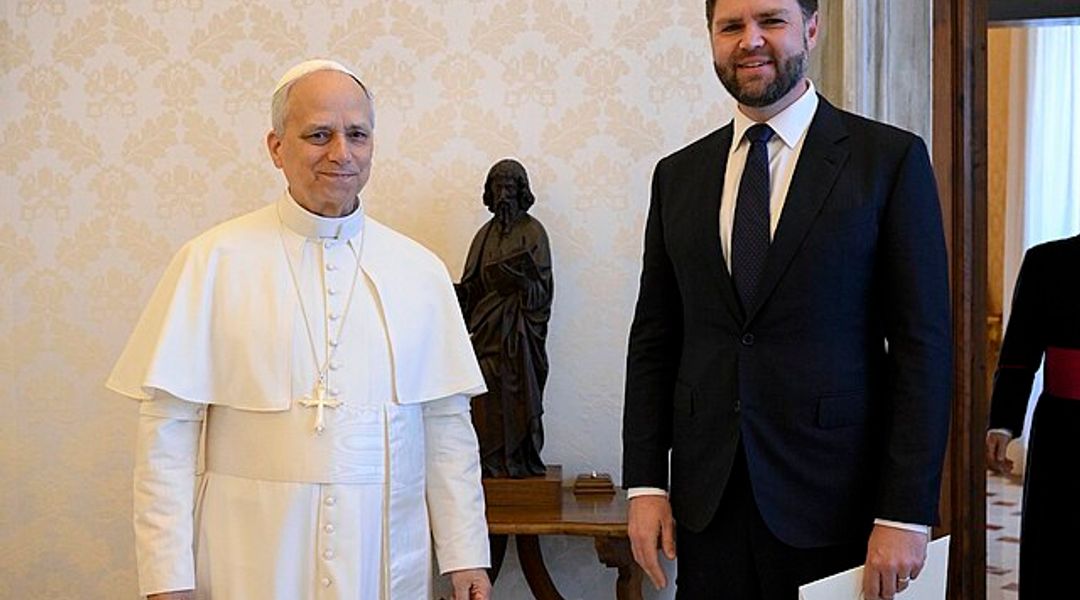A string of high-level bilateral meetings held on the sidelines of Pope Leo XIV’s inaugural Mass did not go unnoticed. On May 19, Pope Leo XIV received U.S. Vice President JD Vance for a private 45-minute audience at the Vatican, accompanied by U.S. Secretary of State Marco Rubio. The meeting was followed by a separate conversation with Archbishop Paul Richard Gallagher, the Vatican’s secretary for relations with states.
While the Vatican did not disclose details of the conversation between the pope and the American officials, it described the talks with Gallagher and the U.S. delegation as “cordial.”
During the meeting at the Secretariat of State, the two sides expressed “satisfaction” with the “good bilateral relations” between the United States and the Holy See, and discussed “issues of particular importance to ecclesial life and religious freedom.” The Vatican added that “a broader exchange of views also took place on a number of current international matters, including the need to respect international law and humanitarian principles in conflict zones, and to pursue negotiated solutions between the parties involved.”
A flurry of diplomatic engagements
The day before, following the Mass during which Pope Leo XIV received the pallium and the Fisherman’s Ring, the pope met with the Ukrainian delegation and held a private audience with President Volodymyr Zelenskyy, who had invited him to Kyiv just days earlier. After their meeting, Zelenskyy publicly thanked the Vatican for its “willingness to serve as a platform for direct negotiations between Ukraine and Russia.”
While recent negotiations in Turkey have so far failed to yield results, the topic was central to Sunday’s discussions between Vice President Vance and Zelenskyy. Delegations from both countries met at Villa Taverna, the U.S. Embassy residence in Rome. This isn’t the first time Vatican ceremonies have opened space for diplomatic engagement: during Pope Francis’ funeral, Trump and Zelenskyy sat on simple chairs in the back of St. Peter’s Basilica and held informal talks focused on ending the war in Ukraine.
Leo XIV’s approach to diplomacy
Just days into his pontificate, Pope Leo XIV has already made the war in Ukraine, now in its fourth year, a clear priority, issuing repeated and forceful appeals for peace. “Long-suffering Ukraine awaits at last negotiations for a just and lasting peace,” he said Sunday during his Easter Regina Coeli address, echoing language frequently used by Pope Francis.
Can these early meetings with world leaders be seen as a sign that Leo XIV intends to take a more active role in peace efforts? According to François Mabille, an expert in international relations, it’s too early to draw firm conclusions. Still, he believes Leo XIV is “picking up one of the defining traits of his predecessor. Being American gives him an additional advantage.” The pope, he said, shows no signs of backing away from the Vatican’s commitment to global peacebuilding.
“However, we can begin to speculate on how he might do so,” Mabille added. So far, Leo XIV has not openly positioned himself as a mediator — a key difference from Pope Francis, but one that aligns more closely with traditional Vatican diplomacy, which typically intervenes only when explicitly requested by all parties. As defined in Article 24 of the 1929 Lateran Accords, the Holy See remains “outside of temporal competition among states,” while “reserving the right to assert its moral and spiritual authority.”
Legal mind at the helm
Trained in canon law, Pope Leo XIV may bring a more jurisprudential approach to diplomacy. “Perhaps the pope is returning to a less activist model,” Mabille said. “He inherits from Francis a strong geopolitical presence, but he engages as someone grounded in the law.”
In a 2022 interview with a Peruvian outlet, then-Cardinal Robert Francis Prevost used the term “war of aggression” — drawn from international law — to describe Russia’s invasion of Ukraine. “Such precision sets the stage for a different diplomatic posture,” Mabille noted.
Still, Leo XIV has not shied away from invoking the Holy See’s “moral and spiritual power.” During his address Sunday, standing before Israeli President Isaac Herzog on the steps of the basilica, the pope opened his remarks by decrying the war in Gaza, where “children and families are being starved.” It was a bold message at a time when Israel has pledged to intensify its military campaign in Palestinian territory.
